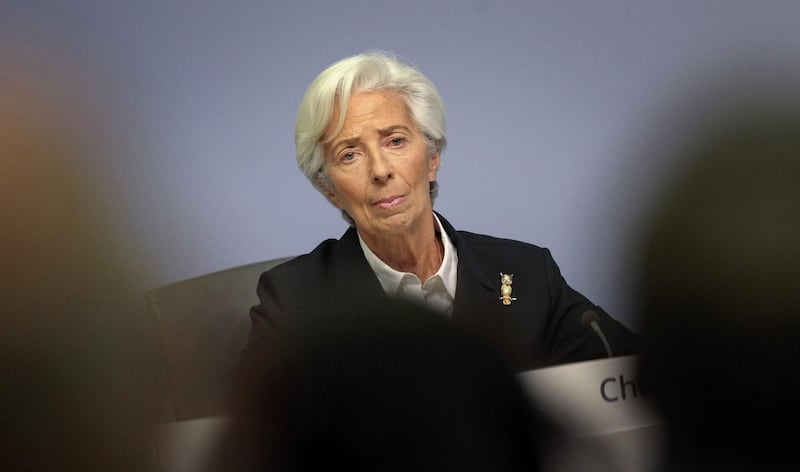European Central Bank chief Christine Lagarde sounded the alarm over the use of cryptocurrencies for money laundering on Friday as she backed the adoption of digital currencies by central banks.
The ECB president said people were taking a "real risk" by buying cryptos with her comments coming a day after Bank of England governor Andrew Bailey warned investors to buy cryptos only "if you're prepared to lose all your money".
“Cryptocurrencies – these two things don’t go well together and I totally agree with Andrew Bailey’s conclusion in that respect,” Ms Lagarde told a virtual webinar, hosted by the European University Institute, in which she quoted the BoE governor.
“There are crypto assets which people are free to invest in and take full risk into and there are particular cryptos that are, in my view, prone to money laundering activities – it’s a real risk that people are taking.”
Central banks and governments around the world are becoming increasingly concerned over the use of cryptocurrencies for money laundering, financing terrorism and other illegal activities.
Bitcoin and Ethereum, the two biggest cryptocurrencies, surged to record highs this year as institutional investors piled into the digital asset space encouraging retail investors to follow suit.
Meanwhile, Meme-based virtual currency Dogecoin soared to a new high this week, extending its 2021 rally to become the fourth-biggest digital coin.
Ms Lagarde said crypto assets had nothing to do with stable coins or the digital currencies being considered by central banks, such as the digital euro.
While central bank digital currencies, or CBDCs, are not yet in widespread use, more than 60 central banks are now exploring or developing CBDCs, PricewaterhouseCoopers said.
Central banks, including the ECB, aim to use the flexibility of digital cash to improve payment systems, ease some of the complexities of negative interest rates and ensure they don't cede too much control to digital currencies.
However, the scope and scale of central bank digital currency research varies from country to country. While The People's Bank of China is in advanced stages of testing a digital yuan that would be used by individuals and businesses, the Bahamas has a fully working, digital 'Sand Dollar' and Sweden could have a digital currency within five years.
Last month, the BoE pledged to team up with the UK Treasury to examine the potential creation of its own digital currency.
Meanwhile, the ECB recently completed a public consultation on a digital euro, with privacy the number one factor demanded by Europeans, followed by security.
Very good to virtually meet members of @EP_Economics. Together with my @ecb Executive Board colleagues, we exchanged views on our ongoing strategy review and a possible digital euro.
— Christine Lagarde (@Lagarde) May 3, 2021
Their insights are important for ensuring our policies benefit everyone in the eurozone. https://t.co/AwHe2Go2t4
Ms Lagarde said she was first attracted to digital currency when she headed the International Monetary Fund, because they have the potential to be more inclusive and cheaper for emerging market countries, as well as being faster and more efficient.
“When you start looking at many of those remittances that flow from country to country, it begs for that kind of instrument,” she said.
“It’s a big project, which is filled with lots of technical issues, issues of principles, issues of sovereignty, issues of monetary policy transmission and the issue of the role to be played by the traditional actors that we are accustomed to.
“I know there is a lot of concern and worry from the commercial banks but we owe it to the Europeans to actually explore it. Europeans are telling us … they are very interested. They want it; the pandemic has accelerated the process and about 50 per cent of Europeans say, 'I'd like to pay digitally, I'd like to use a device like that'.”
More on cryptocurrencies
BoE's Andrew Bailey: Current cryptocurrencies aren’t built to last
Anthony Scaramucci’s SkyBridge Capital to focus on new ‘digital gold’ Bitcoin








